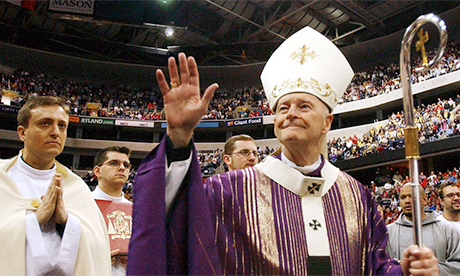As the sexual abuse scandal surrounding Cardinal Theodore McCarrick continued to spread in the past week.
Cardinal Sean O’Malley, who heads the Catholic Church’s Pontifical Commission for the Protection of Minors, acknowledged on Monday (July 23) that “a major gap still exists in the church’s policies on sexual conduct and sexual abuse.”
O’Malley, who is also the archbishop of Boston, noted that while the church has a zero-tolerance policy for the sexual abuse of minors by priests, there is a need for clearer norms and procedures for investigating and judging bishops.
But O’Malley’s statement raises further questions.
Who will set the norms for bishops?
Under canon law today, only the pope has authority over bishops and cardinals, although there were examples of bishops being tried by provincial councils in the ancient church.
That is why only priests and deacons are subject to the norms and procedures set by the United States Catholic bishops for dealing with accusations of sexual abuse.
The bishops conference does not have the authority to set norms for their own bishops.
The pope needs to publish norms making clear that there will be zero tolerance for bishops who abuse children or allow abusive priests to continue in ministry.
The McCarrick case also shows the need for zero tolerance for a bishop who has sex with his seminarians or priests.
Any bishop involved in these activities should lose his office.
Any cardinal should lose his red hat.
There is no reason the pope could not publish these norms immediately.
Who will investigate allegations against a bishop?
The church needs better ways of investigating allegations against bishops.
True, Archbishop Charles J. Scicluna of Malta has done an excellent job investigating cases for the Vatican, but there are few other clerics up to the task.
A degree in canon law does not equip a person to handle such cases.
Smart American bishops use laypersons with expertise in investigating sex crimes — for example, detectives and retired police officers.
The Vatican should do likewise.
The local police and courts should, of course, deal with criminal cases, even for bishops.
When Cardinal McCarrick was accused of abusing a minor in New York, it was reported to the police.
Pope Francis also empowered the Archdiocese of New York to conduct its own investigation, treating McCarrick like any other priest.
The archdiocese hired an independent forensic agency, whose findings were given to the archdiocesan review board, which found the accusations “credible and substantiated.”
That conclusion was then sent on to the Vatican.
This process worked, however, because Cardinal McCarrick was already retired.
A sitting diocesan bishop would be investigated by his own investigators and reviewed by his own review board, whose findings would not be credible. Someone outside the diocese, normally the Vatican, must do the investigation.
Who will judge an accused bishop? Continue reading
- Image: NYT
News category: Analysis and Comment.




